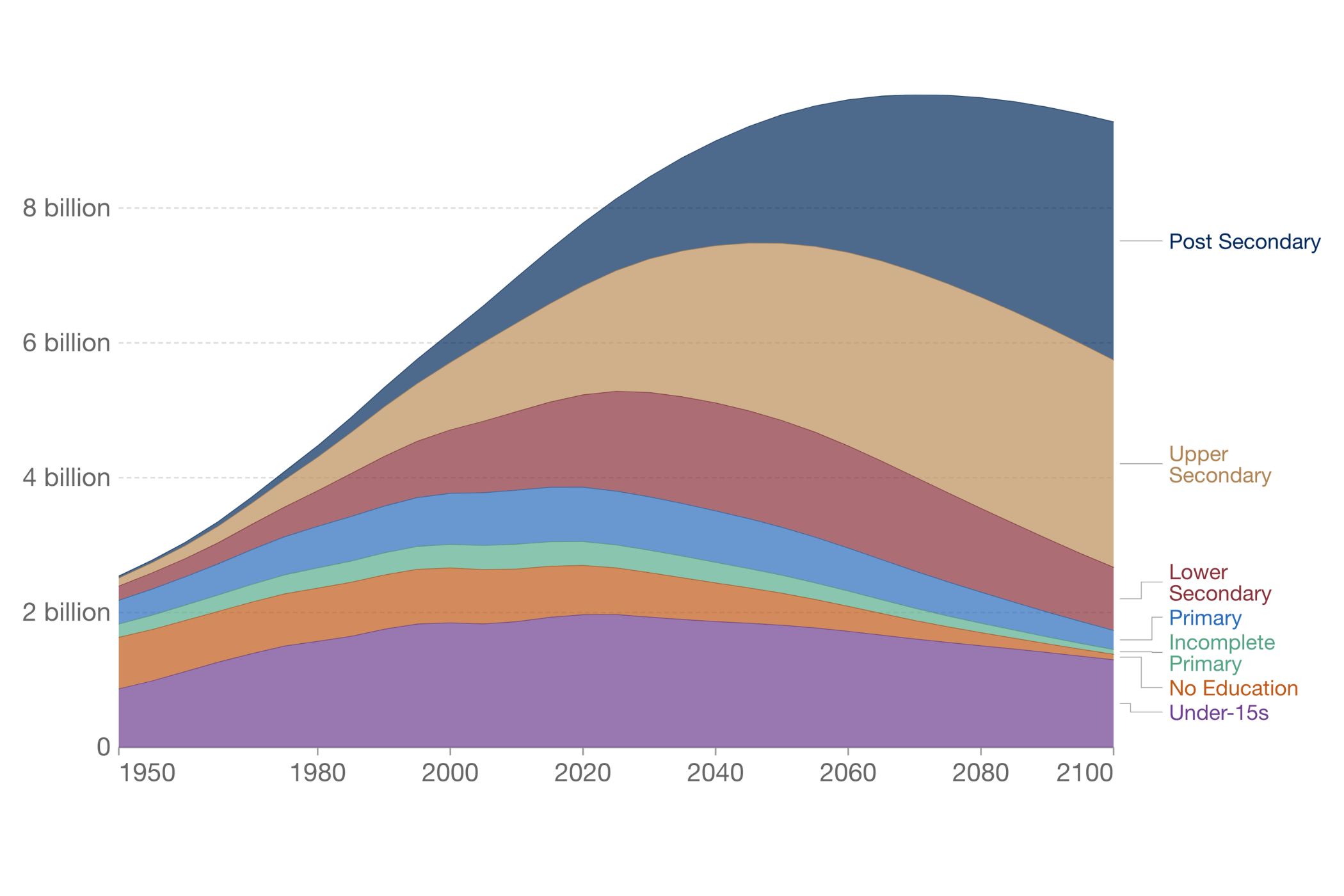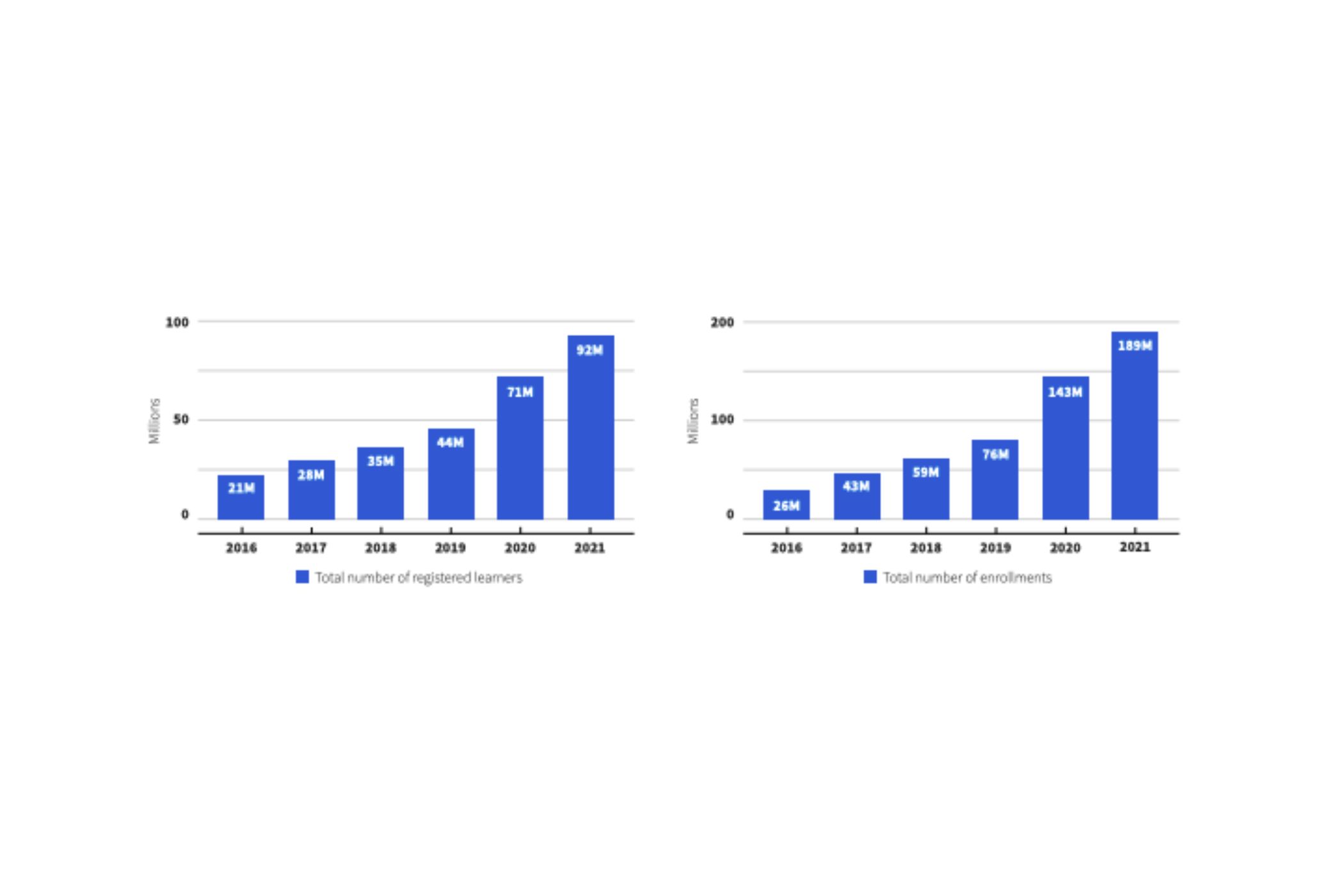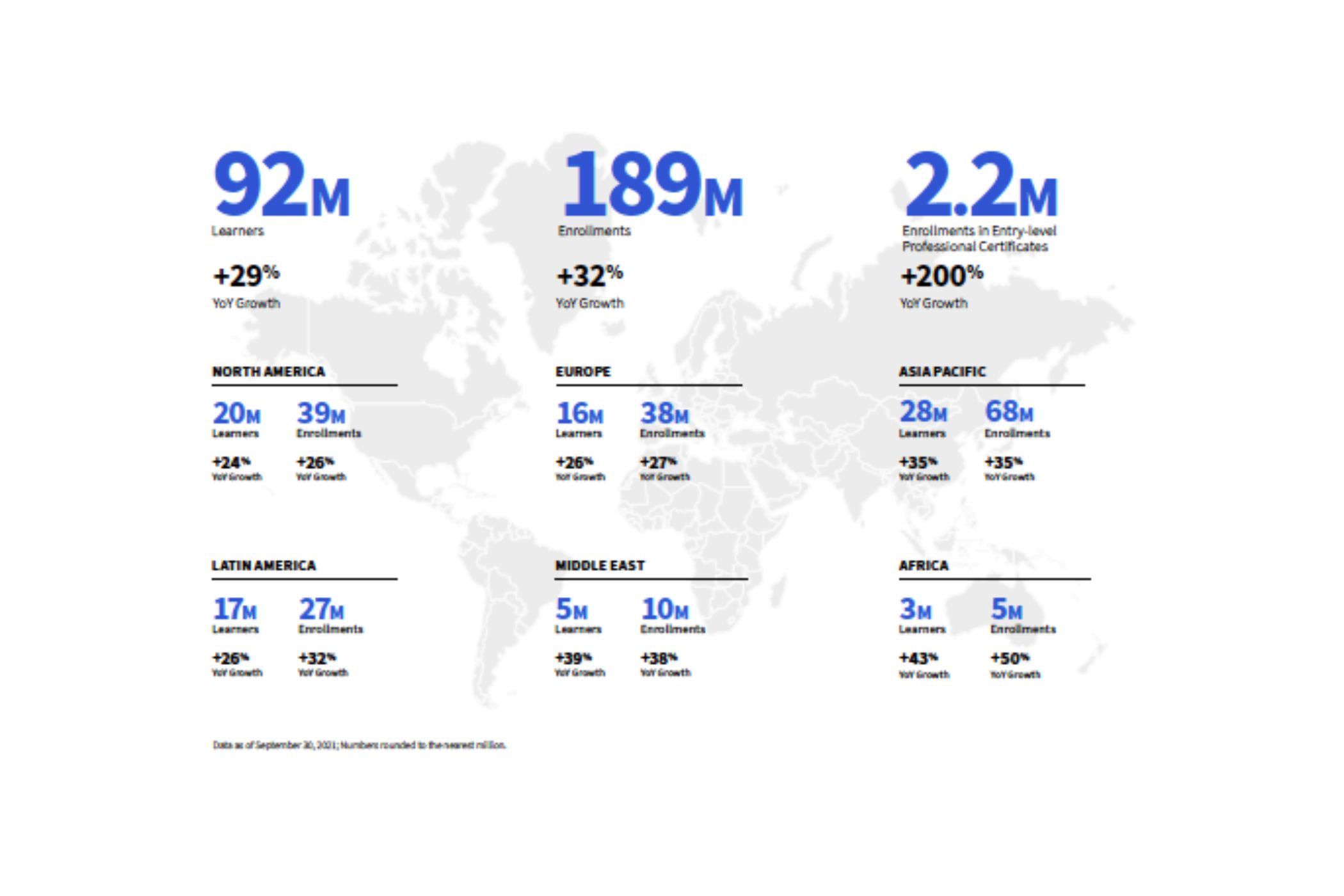Learning Continues to Increase Globally: Online Learning surges

Summary: The Global learning population is rising, with projections of 350 million more graduates by the next decade and 2 billion learners by 2050. Online education grows significantly.
Global Learner Population on The Rise
The global learner population is consistently growing, it is estimated that there will be approximately 350 million additional post-secondary graduates in the coming decade. Looking even further ahead, by 2050, an astounding 2 Billion more learners are expected to engage in educational pursuits.

Online Learning is Increasing
Online learning stands out as the education industry’s fastest-growing market boasting an astounding 900%
growth since its inception in the 2000s (Oxford College).
In recent years online learning grew rapidly because of the Covid-19 pandemic.
This has highlighted the benefits of online learning, and a few years after the Industry is expected to have grown by 200% by 2025.
A prominent global online learning platform Coursera reports that the number of students accessing its online courses has surpassed pre-pandemic levels. In 2020, enrolment numbers experienced a remarkable doubling, and the subsequent year witnessed a notable 32% increase, reaching a peak of 189 million students (Coursera).

Among various regions, the Asia Pacific stood out with the most significant student presence on the learning platform, as it witnessed 28 million new online learners enrolling for 68 million courses. Following closely were North America, Europe, and Latin America. Comparatively, Africa had 3 million online learners participating in 5 million courses. It's worth noting that Africa experienced the most substantial growth in both student registrations (a remarkable 43% increase) and course enrolments (rising by an impressive 50%)..

What It Means
These impressive increases signify the worldwide acceptance of online education, encompassing higher education courses taken by remote learners and individuals from vulnerable or remote communities. This increase reflects a change in attitudes from traditional ways of learning to online learning, to highlight this change 98% of universities that did not previously offer online learning now offer it.
Furthermore, these demographic and macro trends underline the fact that a lot of people around the world will continue to educate themselves. Secondly, scalable technology will be needed in order to reach all the masses given that there will likely be a shortage of teachers, and given other challenges that different continents face
References
https://www.oxfordcollege.ac/news/online-education-statistics/
https://www.mckinsey.com/industries/education/our-insights/demand-for-online-education-is-growing-are-providers-ready
https://kenza-bouhaj.medium.com/edtech-in-africa-a-landscape-6bb03c299b33
https://blogs.worldbank.org/opendata/worlds-population-will-continue-grow-and-will-reach-nearly-10-billion-2050
https://about.coursera.org/press/wp-content/uploads/2021/11/2021-Coursera-Impact-Report.pdf
ttps://ourworldindata.org/global-education